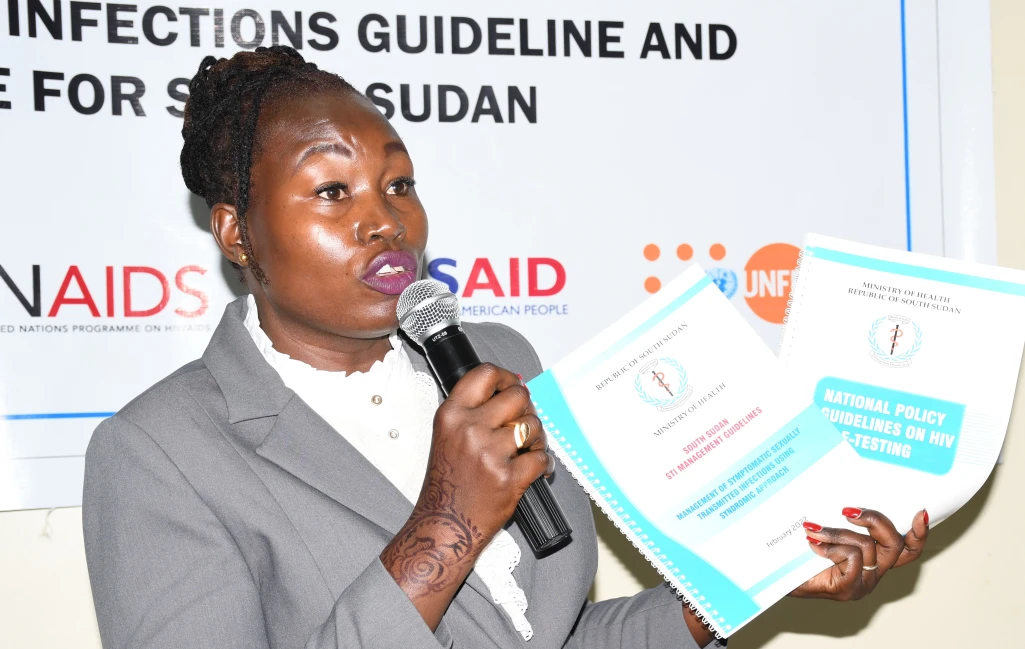
South Sudan launched a new guideline to tackle sexually transmitted diseases infection. It’s known as the “Triple Elimination Initiative of mother to child transmission of HIV, Syphilis and Hepatitis B” diseases.
The Imitative came when the country commemorated International World Health Day, annually observed on the 7th of April.
National Minister of Health Hon. Yolanda Awel Deng says the World Health Organization and the African health committee have approved a framework for Triple elimination initiative to fight the spread of HIV, Sexual Transmitted Diseases (STI), and Hepatitis B, which set a vision for infants free of Aids.
“The framework called for a coordinated approach and effort to achieve and sustain Triple Elimination and better health for women, children, and their families,” she said.
Hon. Awel says South Sudan has witnessed massive progress in the last five years in the fight against HIV, but collective efforts are needed to make more significant achievements.
She called on the donor community to continue supporting the country’s health sector and expanding training and awareness on the three diseases among pregnant women.
“As Minister for health, I assured you for the higher political commitment, lobby for the fund to move forward the triple elimination agenda in South Sudan.”
The United Nations Programme on HIV/AIDS (UNAIDS) Representative in South Sudan, Lords Dartey, says the launch of triple Elimination allows preventing the spread of sexually transmitted diseases.
He said South Sudan is one of the lower healthcare costs globally and urged the country to fund the health sector and collect accurate data and research to ensure the number of those infected so the government and partners act.
“We believe that adopting the triple Elimination approach will undoubtedly positive impact and effort toward eliminating mother-to-child transmission.”
According to the UNAIDS, 11% of women in the country were tested positive for HIV AIDS in 2019.
He says the integration of three diseases elimination should be taken seriously in the country’s community primary health care and data management system.
Representative of World Health Organization (WHO) Joel Katoro encourages people to go for voluntary tests and know their status to reduce the spread of sexually transmitted diseases.
According to the Ministry of Health, 2.1% of the population is infected with HIV-AIDS, with a higher prevalence in Western Equatoria and Lakes states in South Sudan. The lowest is Northern Bahr El Ghazal and Greater Upper Nile states.